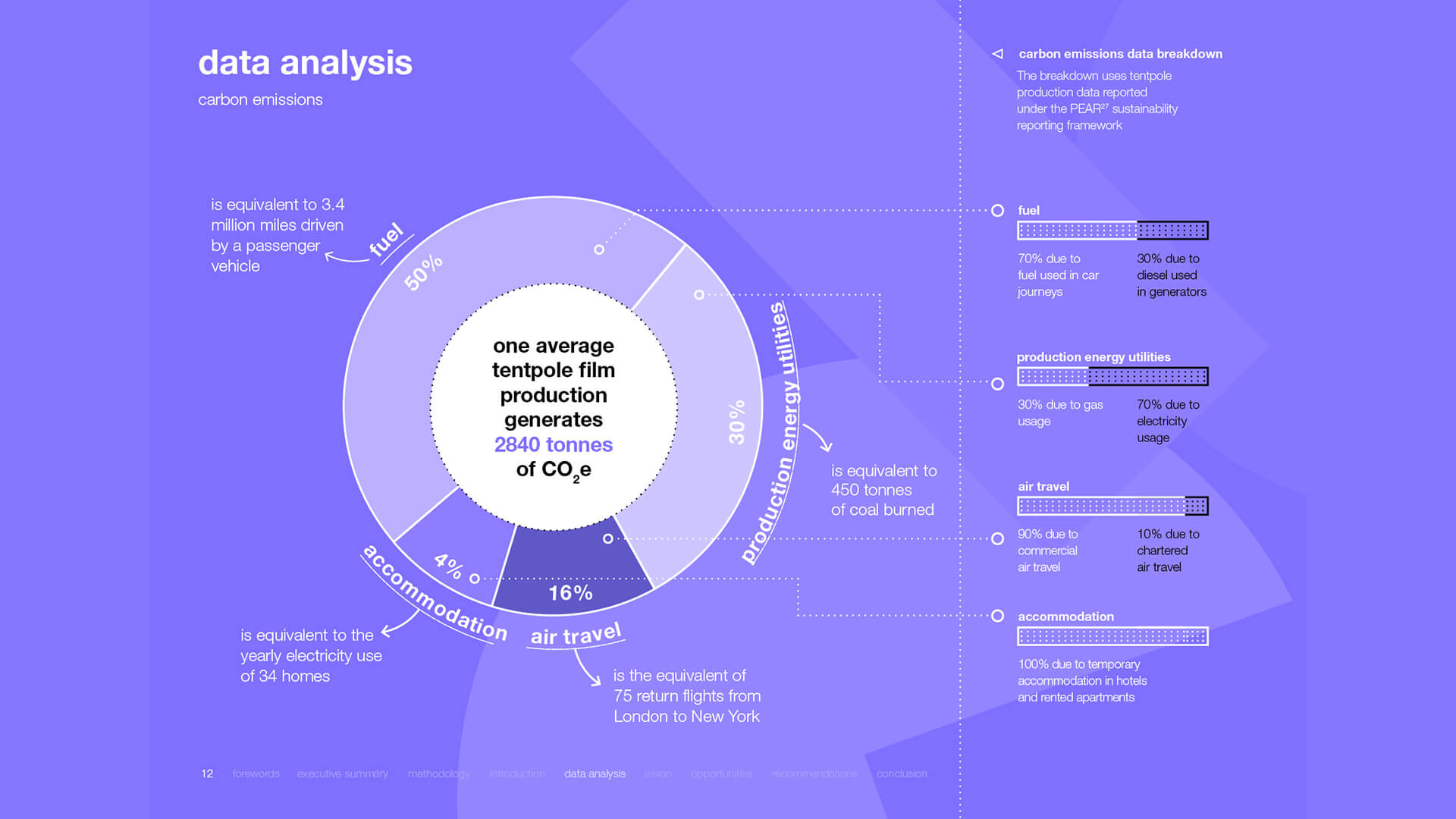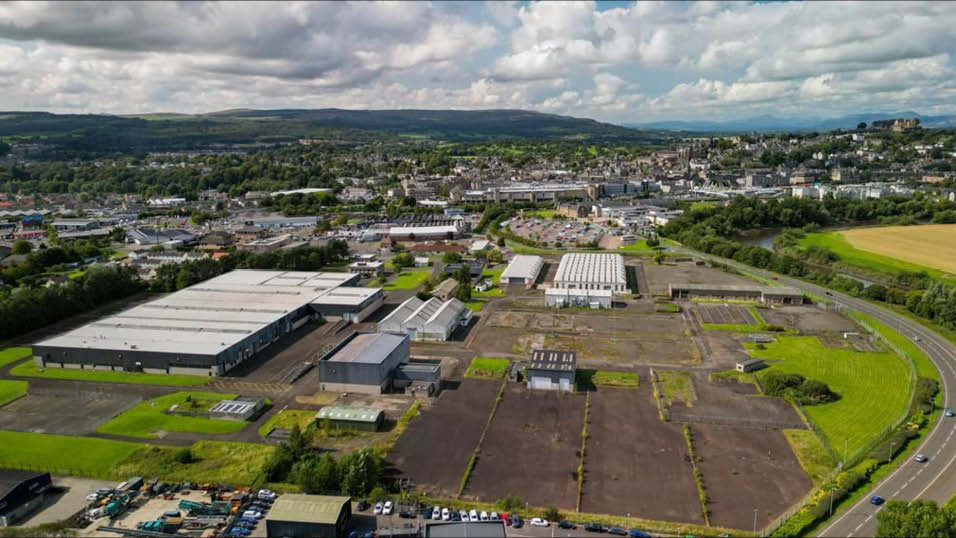A new report, produced by the BFI and BAFTA-led consortium albert and Arup, sets out the changes the film and TV production industry could make to drastically reduce its carbon footprint.
The report, A Screen New Deal, provides proposals for studios, recommendations and case studies of best practice and new innovation models from around the world. Global engineering and design firm specialist Arup, undertook the research and analysis.
The report looks at everyday practices and offers a range of long-term solutions, some that are relatively simple to implement, to bigger, more ambitious ideas which require structural industry-wide shifts to implement successfully. Case studies from other industries that could be adapted to work for the film production industry are also explored.
It concludes with six principles on which a sustainable future depends, starting with the need to measure the industry’s true environmental impact. Digital collaboration and end-of-life planning will also be fundamental, along with the right infrastructure at studio sites to support sustainable production. Actionable recommendations are provided for each stakeholder in order to facilitate prioritisation and decision-making.
To produce the report, Arup analysed sustainability data from more than 19 productions filmed in the UK and the US in the last five years to assess resource consumption patterns and carbon emissions. Tentpole films (with budgets at $70m or over) were chosen for the analysis on the basis that they would have the largest carbon footprint although guidance and resources detailed in the study are of value to films at all budget levels.
On average a tentpole film generates 2,840 tonnes of CO2e during production. This total carbon impact is equal in air miles terms to 11 one-way trips from the Earth to the moon; emissions contributed by air travel alone on a production is equivalent to flying one way from London to New York 150 times, or 3.4 million car miles. The carbon footprint from accommodation used on a production is equivalent to the use of electricity by 34 homes for one year.
Harriet Finney, Director of External Affairs for the BFI, says: “Our film and screen production industries are facing an undeniable period of change as we enter a world which is responding creatively and economically to harsh impacts of the pandemic. Commissioned last year, the purpose of this report by Arup was to share innovation and knowledge and help kick-start a more sustainable production ecosystem. Arriving now – just as productions restart and introduce new ways of working on set and on location – there is an opportunity to consider how we create efficiencies in our approach to materials and resources and learn how innovation is working for other industries. This piece of work is not the solution to delivering greater environmental sustainability but it provides us a valuable route map for taking forward positive action.”
Pippa Harris, Chair of the albert Film Forum and Producer at Neal Street Productions, says: “This report is being published at such an important moment for our industry. We have all felt the devastating economic and cultural effects of the pandemic, so now is the time to regroup and come back stronger. We cannot continue to create films in the same manner we did before with no long-term plan for the environment around us. It’s time for our industry to lead the way both on and off screen and rebuild for a cleaner, greener future.”
Aaron Matthews, Head of Industry Sustainability, albert, says: “We want this report to kick-start a long overdue conversation with the key decision makers in the film industry. As we emerge from lockdown we need to rethink our approach to filmmaking, if we simply pick up where we left off we will miss our chance to deliver what is environmentally necessary. The changes suggested in this report can’t be implemented overnight and some of them require a new way of thinking but grasping this challenge now will lead to improved efficiencies in the way we work, meaning more cash can be spent on what we see on screen rather than what we have to currently send to landfill.”
Tim Snelson, Associate Director, Arup, says: “Renewable options becoming increasingly available and cheaper. Our study highlights the complexity, urgency and importance of more sustainable and resource-efficient approaches to film production. This complexity is an opportunity, a chance to look at radical new ideas and to learn from innovation in other industries. Solving the sustainability challenge will be a competitive advantage that the UK production industry should pursue collectively and with a clear vision.”
Following the publication of the report, albert will be hosting a series of online events with the support of BFI and Arup to explore the different sections of report. The event programme will kick off with an online webinar on September, hosted by Pippa Harris that will look at the report as a whole.
The full report can be seen here
Jon Creamer
Share this story
















